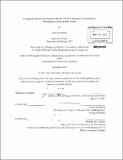| dc.contributor.advisor | Stefan Helmreich. | en_US |
| dc.contributor.author | Wylie, Sara Ann | en_US |
| dc.contributor.other | Massachusetts Institute of Technology. Program in Science, Technology and Society. | en_US |
| dc.coverage.spatial | n-us--- | en_US |
| dc.date.accessioned | 2012-02-29T17:28:23Z | |
| dc.date.available | 2012-02-29T17:28:23Z | |
| dc.date.copyright | 2011 | en_US |
| dc.date.issued | 2011 | en_US |
| dc.identifier.uri | http://hdl.handle.net/1721.1/69453 | |
| dc.description | Thesis (Ph. D. in History, Anthropology, and Science, Technology and Society (HASTS))--Massachusetts Institute of Technology, Program in Science, Technology and Society, 2011. | en_US |
| dc.description | Page 689 blank. Cataloged from PDF version of thesis. | en_US |
| dc.description | Includes bibliographical references (p. 652-688). | en_US |
| dc.description.abstract | Natural gas extraction in the United States in the early 21st century has transformed social, physical, legal and biological landscapes. The technique of hydraulic fracturing, which entails the high-pressure injection into subsurface shale formations of synthetic chemical mixtures, has been viewed by the natural gas industry as a practice of great promise. But there is another side to the story. The first half of this dissertation explores an innovative scientific approach to studying the possible deleterious impacts on human health and the environment of the release of chemicals used in gas extraction. Via participant-observation within a small scientific advocacy organization, The Endocrine Disruption Exchange (TEDX), I follow the development of a database of chemicals used in natural gas extraction, a database that seeks to document not only what these chemicals are (many are proprietary), but also what sorts of bodily and ecological effects these substances may have. I analyze ethnographically how TEDX transformed an information vacuum around fracturing and generated fierce regional and national debates about the public health effects of this activity. The second portion of the dissertation expands TEDX's databasing methodology by reporting on a set of online user-generated databasing and mapping tools developed to interconnect communities encountering the corporate forces and chemical processes animating gas development. Shale gas extraction is an intensive technological practice and requires the delicate calibration of corporate, governmental, and legal apparatuses in order to proceed. The industry operates at county, state, and federal levels, and has in many instances been able to organize regulatory environments suited to rapid and lucrative gas extraction. In the midst of such multi-scalar deterritorializing forces, communities may have little legal or technical recourse if they think that they have been subject to chemical and corporate forces that undermine their financial, bodily, and social security. ExtrAct, a research group I co-founded and directed with artist and technologist Chris Csikszentmihalyi, sought to intervene in these processes by developing a suite of online mapping and databasing tools through which "gas patch" communities could share information, network, study and respond to industry activity across states. Using ExtrAct as an example this dissertation explores how social sciences and the academy at large can invest in developing research tools, methods, and programs designed for non-corporate ends, perhaps redressing in the process the informational and technical imbalances faced by communities dealing with large-scale multinational industries whose infrastructure and impacts are largely invisible to public scrutiny. The dissertation describes one potential method for such engaged scientific and social scientific research: an iterative, ethnographically informed process that I term "STS in Practice." | en_US |
| dc.description.statementofresponsibility | by Sara Ann Wylie. | en_US |
| dc.format.extent | 689 p. | en_US |
| dc.language.iso | eng | en_US |
| dc.publisher | Massachusetts Institute of Technology | en_US |
| dc.rights | M.I.T. theses are protected by
copyright. They may be viewed from this source for any purpose, but
reproduction or distribution in any format is prohibited without written
permission. See provided URL for inquiries about permission. | en_US |
| dc.rights.uri | http://dspace.mit.edu/handle/1721.1/7582 | en_US |
| dc.subject | Program in Science, Technology and Society. | en_US |
| dc.title | Corporate bodies and chemical bonds : an STS analysis of natural gas development in the United States | en_US |
| dc.title.alternative | STS analysis of natural gas development in the United States | en_US |
| dc.type | Thesis | en_US |
| dc.description.degree | Ph.D.in History, Anthropology, and Science, Technology and Society (HASTS | en_US |
| dc.contributor.department | Massachusetts Institute of Technology. Program in Science, Technology and Society | |
| dc.identifier.oclc | 774889944 | en_US |
